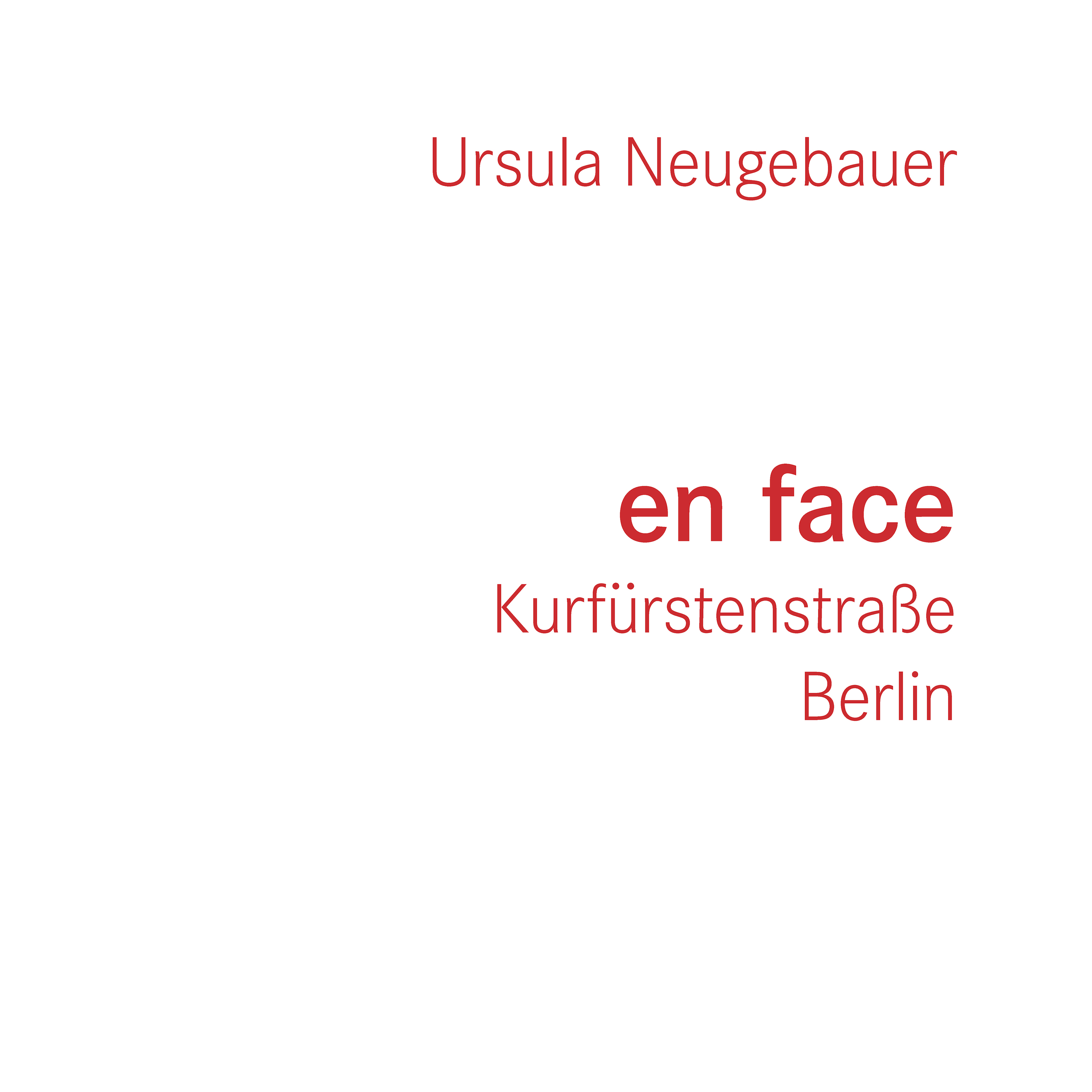The most recent works by Ursula Neugebauer present us with a theme, or rather an anathema, of previously unspoken intuitions. Ursula’s results suggest that “overt purchasability” has to be understood as a virtue. This constitutes a distinction from corruption, which after all obscures the price-performance ratio and leaves the question unanswered as to whether a propensity for corruption generates its use or produces the demand for a propensity for corruption in the first place. It is about throwing light on the ethics of the purchasable, the stigmatized, as well as the opportunists. For this purpose, Ursula Neugebauer documented several affected “conversations with whores” in Berlin’s Kurfürstenstrasse and rendered them as objects.
The hair portraits make subtle reference to the long tradition of the manifestness of relic worship: even today, contemporaries tend toward the spontaneous handling of a farewell scene by relinquishing a striking small object from the aura of the intimate. Wearing a lock of hair in a medallion against one’s breastbone confers intimacy in one’s mental orientation toward the absent. We are familiar with the reference to dandruff or hair on one’s clothing from advertisements for body hygiene. Until now, hardly anyone has taken note of these scalp treatment and hair loss products. Like Duchamp, Ursula meticulously joins them together to produce figurative schemata under glass as prescribed by the tradition of preserving relics.
Where does this interest in the métier of overt purchasability—indeed, the manifold forms of deviant behavior in those areas customarily denied estimation—come from? It seems that we have to take into account that the ideal of the binding nature of social relationships is only complied with in criminal organizations, for instance mafias, governments, or corporations. In practice this means that we have to fall into line with organizations of this kind if we want to preserve the experience of inviolability, stability, and continuity. We long since know that it is precisely liars who rescue the truth. Now it also becomes evident that the virtue of middle-class life in reciprocal recognition of all of the members of a social community is only abided by in the closed societies of criminal organizations. Based on their experience that the supposedly valid obligations in social dealings can be randomly broken only given enough money, prestige, and freedom of consciousness, criminals introduce their justification to break with prescribed rules in order to take strict heed that no one circumvents the self-codified rules.
Criminals develop a high ethos of superiority toward host societies in their social communities out of strict adherence to this commitment to absolute internal authority.
Religious combat units also clearly emphasize the superiority of their parallel societies by pointing out that they per se, for instance with the sharia, take the concept of law seriously that has been destroyed by “middle-class art prostitution” and “reveling in moral turpitude.”
In this sense, even German businessmen can be viewed as members of a parallel society, because they insist on their own jurisdiction (see the TTIP negotiations), for they know best that the alleged constitutional state has begun to falter due to their power, which is why they no longer trust it. Cocooning adopts the structures of criminal organizations. In German: exclusivity through the strictest inclusion constraints conceivable. The open mafiaization, or, put more politely, the “Balkanization” of host societies has long since been in effect.
A discussion about the establishment of fascism and other totalitarianisms due to the desire to enforce commitment has been going on for a long time, because the freedom of democracies as the mere freedom of choice of each contemporary in the horror pleni, overpowering by the vast multitude, condemns us to powerlessness. Here, less is more means: only reduction leads to reliability.
Working in the milieu, Ursula Neugebauer points to the problematic connection between the need for the reduction of complexity and the desire for commitment. Totalitarianism remains clearly intelligible as a strategy of coercion for that which should rigorously apply to everyone. On the side of the prerogative for insight into necessity, one defines commitment by making reference to that which applies to everyone. Thus good citizens could welcome fascism as a creator of order. On the side of the prerogative for arbitrariness, what applies to everyone is that they are corruptible, egotistic, obsessed with power, and in any case intent on their own gain.
The mafia-like “Balkanization” of our society apparently mediates between the prerogative for arbitrariness outward and the prerogative for insight into necessity inward. The motto of the old citizenry of Lübeck continues to apply: “Get what you can from the outside for the purpose of being able to safely preserve it internally and even to share it with your fellow citizens.”
 + 1 Bild
+ 1 Bild